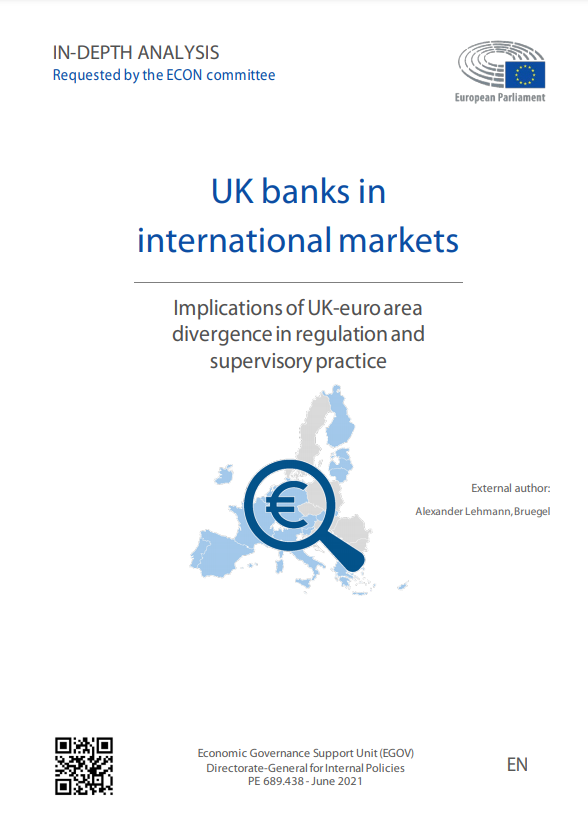Blog Post
Getting accustomed to Brexit – UK and the customs union scenario
The Labour Party’s support of customs union membership has the potential to change the course of Brexit, with 13 months left to close negotiations. This week we review the commentary around the possibility of a post-Brexit EU-UK Customs Union.
Monday, 26th February 2018, 10.56 AM. Speaking about Labour’s vision for Britain after Brexit, Jeremy Corbyn communicates the party’s support for a future customs union:
“Labour would seek a final deal that gives full access to European markets and maintains the benefits of the single market and the customs union (…) with no new impediments to trade and no reduction in rights, standards and protections.”
The debate around the shape that trade relations between the EU and the UK will take after Brexit is not new. Concerning Labour’s position in particular, the BBC’s Laura Kuenssberg notices “the party’s tip toes towards this policy have been long anticipated”. In the blogosphere and the media, the conversation has been revolving around the existing trade agreements between the EU and third-countries, so as to try and understand which existing agreement could better provide a model for negotiations.
As André Sapir explains: “At the moment, the UK by virtue of being a member of the EU, is a member of both the European Single Market and the European Customs Union. The Customs Union and the Single Market are two different ‘animals’. Being in the Customs Union means that basically, there are no customs duties, no tariffs in trade between the UK and the rest of the EU; Being a member of the Single Market means that, in addition, there are also no regulatory differences between the UK and the EU.”
The possibility of an EEA-type of solution (the “Norway” solution) has been raised. André Sapir clarifies that: “Norway is not a member of the EU but it belongs to the European Single Market. However, Norway does not belong to the EU Customs Union.” What this means is that “there is a border, there are customs duties, but there is no paperwork as far as the regulation is concerned”. Jean-Claude Piris, among others, has pointed out that this would involve contributing to the EU budget, abiding by the rules of the single market and ultimately giving up some sovereignty. These countries have formally accepted the four freedoms and have agreed to be bound by the judgments of the EFTA court. In case of divergence with the EU court on internal market law, the EU court would prevail.
Turkey can provide an alternative source of inspiration, as Wolfgang Münchau writes for the FT: “The UK cannot stay in the European customs union simply because it is only available to member states. But the UK could have a bilateral customs union agreement with the EU, perhaps one that is similar to the deal the EU has with Turkey (…) [though] the EU would impose tough rules on Britain because its economy is much bigger than Turkey and geographically closer to the EU’s economic centre.
Dan Roberts from The Guardian says: “The catch, however, is that a customs union automatically implies a common external trade tariff with third-party countries. […] Such a diminution of international influence would be a tough sell for any British government.[…] But insisting that Brussels continues to consult the UK when it negotiates with countries such as the US and China is not quite as far-fetched as some critics have been suggesting in the wake of Corbyn’s speech. A deal struck between the EU and US that failed to involve the UK and that subsequently also led to the unravelling of the post-Brexit cross-Channel trade arrangements would be almost as undesirable for future Brussels trade negotiators as it is now. A genuine alliance of UK and EU negotiators operating as a unified bloc may also stand a much better chance of getting what it wants in Washington or Beijing than either could hope for operating alone.”
But a tailor-made bilateral customs union agreement is far from a silver bullet for all Brexit problems, the most salient being the Irish border. Put very simply by Sapir: “Customs union [without a] single market means that a border would remain.” Former UK deputy prime minister Nick Clegg argued on Twitter that: “Up to 17km queues and 30-hour waits at the Turkish/Bulgarian (EU) border show that a Customs Union only gets you so far. Customs Union without Single Market, just as Single Market without Customs Union (see checks at the Norway/Sweden border), leads to delays and queues.”
A reduction of regulatory barriers to trade is likely to be highly priced by the EU, judging by the recent positions on issues of state aid, taxation and labour and environmental standards, claims Aarti Shankar. Simon Wren Lewis goes further: “The UK was always going to stay in a customs union with the EU the moment that the EU put the Irish border as one of the three items to be settled at the first stage of negotiations. (…) To avoid a hard border Northern Ireland has to be in a customs union with the EU and in the Single Market for goods. (…) If this is helpful for goods, why not services which are the UK’s comparative advantage?”
Outside the scope of future trade relations, Chris Dillow adds that it is “poor management; lack of entrepreneurial spirits; insufficiently skilled workers; lack of investment; credit constraints; a lack of price competitiveness; and so on”, that are keeping the UK from exporting more – not membership of a customs union.
Thus far Theresa May has ruled out the possibility of a customs union. On the other side of the Channel, the president of the European Council, Donald Tusk, said on March 1, 2018:“London has definitively confirmed its red lines, including ‘no customs union’ and ‘no single market’. We acknowledge these red lines without enthusiasm and without satisfaction. But we must treat them seriously. With all their consequences. And one of the possible negative consequences of this kind of Brexit is a hard border on the island of Ireland. The EU wants to prevent this scenario.
“Hence, if no other solution is found, the proposal [is] to ‘establish a common regulatory area comprising the Union and the United Kingdom in respect of Northern Ireland’. And, until now, no-one has come up with anything wiser than that. […]There can be no frictionless trade outside of the customs union and the Single Market. Friction is an inevitable side effect of Brexit. In a few hours I will be asking in London whether the UK government has a better idea.
Facing this, there are four scenarios on the table, as summarised by Guntram Wolff: (a) either UK remains in customs union and single market or (b) has a creative new idea or (c) accepts some form of border control between UK and Northern Ireland or (d) goes back onfudge and accepts a border within [the] island of Ireland.
Republishing and referencing
Bruegel considers itself a public good and takes no institutional standpoint. Anyone is free to republish and/or quote this post without prior consent. Please provide a full reference, clearly stating Bruegel and the relevant author as the source, and include a prominent hyperlink to the original post.










